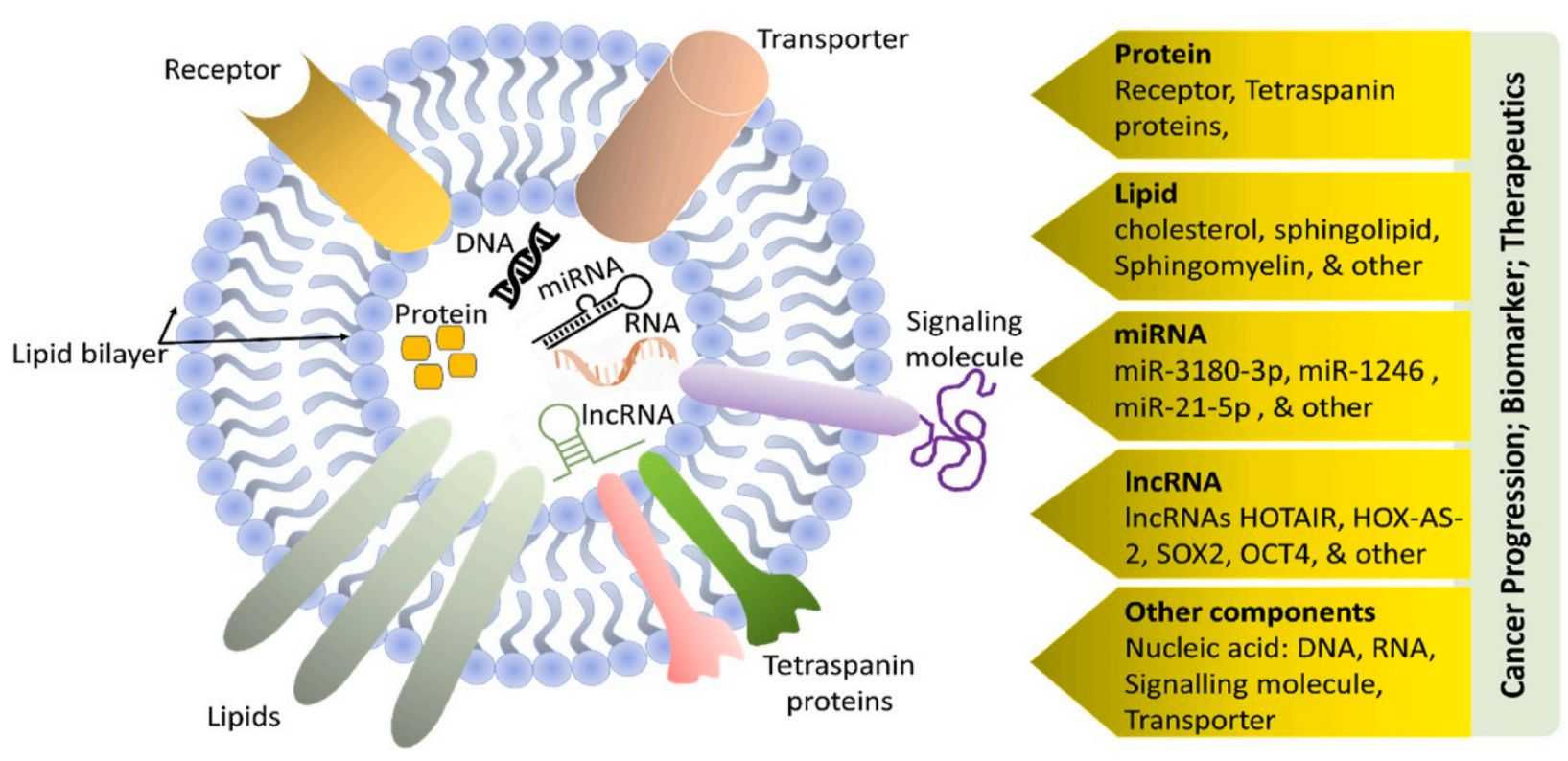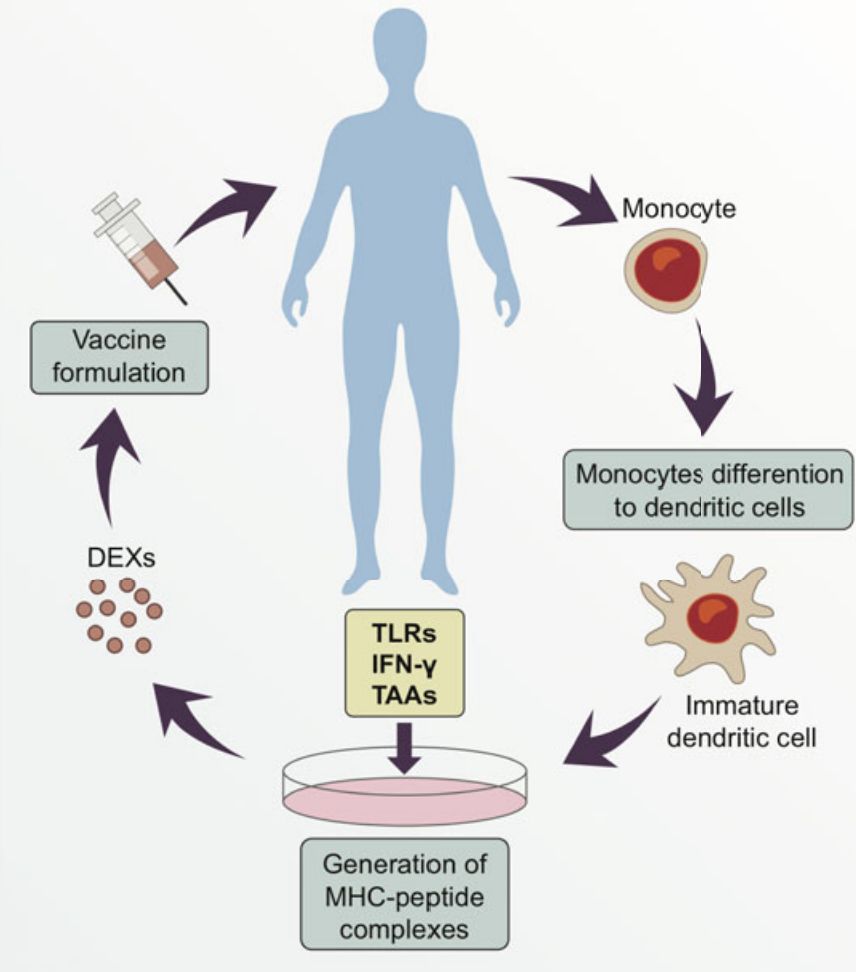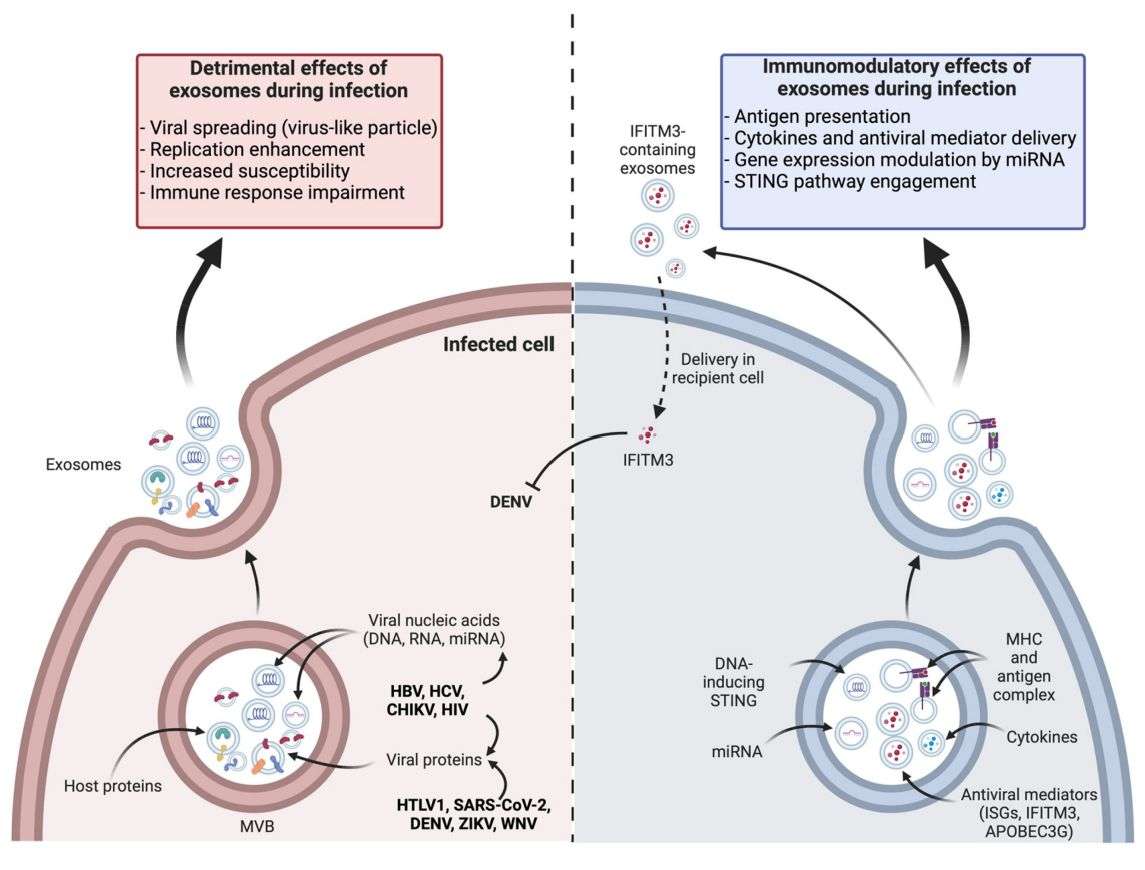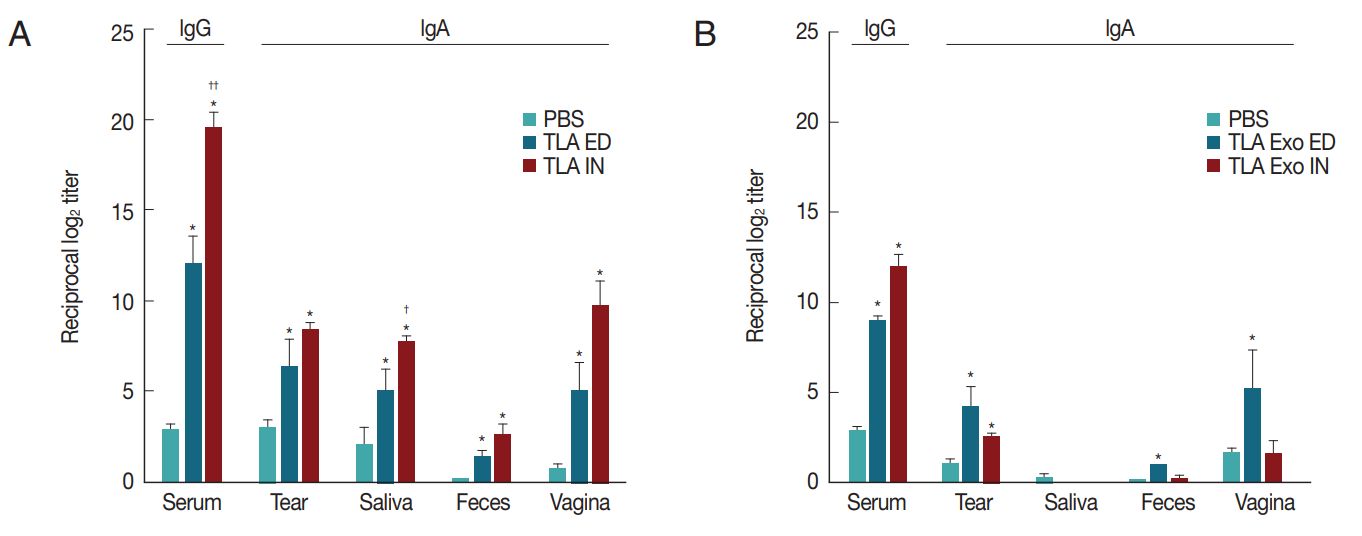What are Exosome-based Vaccines?
Exosomes are nanosized vesicles that deliver nucleic acids, proteins, lipids, amino acids, and metabolites and play a critical role in regulating intercellular communication. Exosomes have been implicated in the pathogenesis of a variety of diseases, including cancer and infectious diseases. Based on the delivery mechanisms and regulatory roles of exosomes, it is possible to develop therapeutic strategies for a variety of diseases, such as vaccination.
What are Exosome-based Vaccines?
Exosome-based vaccines utilize the unique properties of exosomes - naturally occurring extracellular vesicles secreted by cells - to deliver antigens and stimulate an immune response. Exosomes can carry proteins, lipids, and RNA, and their natural role in cell-to-cell communication makes them effective carriers for delivering vaccine components to target cells. In addition, exosomes can be modified or loaded with specific antigens from pathogens (e.g., viruses or bacteria), which are then recognized by the immune system to trigger an immune response. The potential of exosome-based vaccines to provide targeted, efficient, and potent immunity is being explored with potentially fewer side effects than conventional vaccines.
 Figure 1. Schematic of the major components of a typical exosome. (Thakur A, et al., 2021)
Figure 1. Schematic of the major components of a typical exosome. (Thakur A, et al., 2021)
Key Features of Exosome-based Vaccines
Natural Delivery System - Exosomes are biocompatible and inherently used to transport molecular cargo, making them an efficient and versatile delivery system for antigens, nucleic acids (e.g., RNA or DNA), or drugs.
Immunogenicity - Exosomes can present a variety of antigens on the surface that are capable of inducing a targeted immune response.
Adjuvant Properties - Exosomes can naturally potentiate an immune response without the need for additional adjuvants, which are often added to conventional vaccines to increase their effectiveness.
Targeting and Uptake - Exosomes can be engineered to express ligands or receptors that target specific cells or tissues, increasing the precision of the immune response and potentially reducing side effects.
Exosome-based Vaccines for Cancer Therapy
Tumor cells can evade the immune response through a variety of regulatory mechanisms. Under such circumstances, cancer cells can proliferate and promote tumor progression. In recent years, cancer immunotherapy has become a hot research topic for the treatment of tumors, which can reactivate anti-tumor immune responses and control the immune system. Exosome-based vaccination is one of the cancer immunotherapy approaches. These vaccines can induce antigen-specific T-cell and B-cell immune responses and have good biocompatibility and biosafety. In addition, due to the presence of exosomal proteins, this vaccine shows a good synergistic anti-tumor effect. It has been found that dendritic cells (DCs) release the exosome DEX, which presents tumor antigens on the membrane, thereby inducing the initiation of cytotoxic lymphocytes (CTLs) in vivo and subsequent inhibition of tumor growth. Therefore, DEX has become a viable option for cancer vaccination.
 Figure 2. Dendritic cell-derived exosome-based vaccines for cancer therapy. (Santos P, et al., 2021)
Figure 2. Dendritic cell-derived exosome-based vaccines for cancer therapy. (Santos P, et al., 2021)
Exosome-based Vaccines for Viral Infectious Disease Therapy
The development of vaccines for infectious diseases is considered one of the most advanced areas in gene therapy. Similar to cancer, exosomes play a crucial role in the pathogenesis of infectious diseases and also trigger immune responses. Currently, major research is focused on the development of RNA vaccines utilizing mRNAs as therapeutic agents. As endogenous nanovesicles, exosomes have the advantages of body-circulation stability, good biocompatibility, and specific targeting to tissues and cells, which make them ideal delivery vehicles for mRNA. Various studies have reported the feasibility and promise of exosome-delivered RNA for the treatment of infectious diseases. For example, researchers have proposed evolutionary similarities between viruses and exosomes in terms of biogenesis and transmission pathways, suggesting exosomes as a potential tool for the prevention of human immunodeficiency virus (HIV). Exosomes could also serve as a new platform for designing influenza vaccines and offer advantages over traditional vaccines.
 Figure 3. Exosomes are involved in the process of viral infection. (El Safadi D, et al., 2024)
Figure 3. Exosomes are involved in the process of viral infection. (El Safadi D, et al., 2024)
Exosome-based Vaccines for Non-Viral Infectious Disease Therapy
Exosomes released by non-viral pathogens, such as bacteria and parasites, play an important role in pathogenesis by interacting with the host immune system and transferring resistance factors. In recent years, exosomes derived from Gram-positive bacteria have gained attention as potential vaccine platforms for a variety of infectious diseases. Exosomes released by Staphylococcus aureus have been modified to become nontoxic and could be used as vaccine candidates to protect mice against the lethal sepsis caused by S. aureus. In addition, exosome-based vaccine studies for infectious diseases have been applied to the treatment of toxoplasmosis. Recent studies have shown that inoculation of DEX stimulated with Toxoplasma gondii lysates into mice subsequently triggered an immune response against Toxoplasma gondii infection.
 Figure 4. Levels of Toxoplasma gondii-specific antibodies induced by Toxoplasma gondii lysate antigen as adjuvant (A), or DEX as adjuvant (B). (Jung BK, et al., 2020)
Figure 4. Levels of Toxoplasma gondii-specific antibodies induced by Toxoplasma gondii lysate antigen as adjuvant (A), or DEX as adjuvant (B). (Jung BK, et al., 2020)
Our Products
As a leading supplier of exosomes, Creative Biostructure specializes in providing high-quality exosome products designed to advance the development of innovative vaccines.
| Cat No. | Product Name | Source |
| Exo-CH02 | HQExo™ Exosome-A549 | Exosome derived from human non-small cell lung cancer cell line (A549 cell line) |
| Exo-CH04 | HQExo™ Exosome-H196 | Exosome derived from Human small cell lung cancer cell line (H196 cell line) |
| Exo-CH06 | HQExo™ Exosome-MCF-7 | Exosome derived from human breast cancer, noninvasive cell line (MCF-7 cell line) |
| Exo-CH09 | HQExo™ Exosome-DAUD1 | Exosome derived from human burkitt lymphoma cell line (DAUD1 cell line) |
| Exo-CH10 | HQExo™ Exosome-HCT116 | Exosome derived from human colorectal carcinoma cell line (HCT116 cell line) |
| Exo-IC01 | HQExo™ Exosome-BC3 | Exosome derived from human B lymphocyte cell line (BC-3 ) |
| Exo-IC02 | HQExo™ Exosome-JM1 | Exosome derived from human T pre-B lymphoblast cell line (JM1) |
| Exo-IC03 | HQExo™ Exosome-Jurkat E6-1 | Exosome derived from human T lymphocyte cell line (Jurkat E6-1) |
| Exo-IC04 | HQExo™ Exosome-RAWS 264.7 | Exosome derived from mouse macrophage cell line (RAWS 264.7) |
| Exo-IC05 | HQExo™ Exosome-JAWSII | Exosome derived from mouse bone marrow immature dendritic cell line (JAWSII) |
| Exo-IC06 | HQExo™ Exosome-NK | Exosome derived from human NK cell line |
| Explore All Exosome Products | ||
In addition to exosome products, Creative Biostructure provides one-stop exosome services including exosome isolation, characterization, engineering, and functional analysis. We are committed to exploring the potential of exosomes as vaccines for cancer and infectious diseases and are looking to satisfy clients' specific requirements for preclinical stage programs. For advice on exosome-based vaccine development, please feel free to contact us.
References
- Thakur A, et al. Exosomes: Small vesicles with big roles in cancer, vaccine development, and therapeutics. Bioact Mater. 2021. 10: 281-294.
- Santos P, Almeida F. Exosome-Based Vaccines: History, Current State, and Clinical Trials. Front Immunol. 2021. 12: 711565.
- El Safadi D, et al. Exosome-Mediated Antigen Delivery: Unveiling Novel Strategies in Viral Infection Control and Vaccine Design. Vaccines. 2024. 12(3): 280.
- Jung BK, et al. Immunogenicity of Exosomes from Dendritic Cells Stimulated with Toxoplasma gondii Lysates in Ocularly Immunized Mice. Korean J Parasitol. 2020. 58(2): 185-189.
